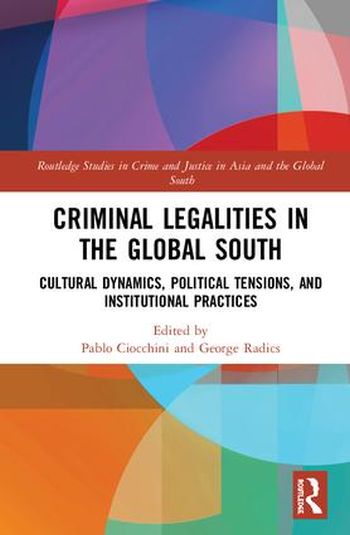
This edited volume presents the work of academics from the Global South and explores, from local and regional settings, how the legal order and people’s perceptions of it translates into an understanding of what constitutes "criminal" behaviors or activities. This book aims to address the gap between criminal law in theory and practice in the Global South by assembling 11 chapters from established and emerging scholars from various underrepresented regions of the world.
Drawing on research from Singapore, the Philippines, Peru, Indonesia, India, the Dominican Republic, Burma, Brazil, Bangladesh, and Argentina, this book explores a range of issues that straddle the line between social deviance and legal crimes in such societies, including extramarital affairs, gender-based violence, gambling, LGBT issues, and corruption. Issues of inclusivity versus exclusivity, modernity versus tradition, globalization of capital versus cultural revivalism are explored. The contributions critically analyze the role politics and institutions play in shaping these issues. There is an urgent need for empirical studies and new theoretical approaches that can capture the complexity of crime phenomena that occur in the Global South. This book will provide essential material to facilitate the development of new approaches more suitable to understanding the social phenomena related to crime in these societies.
This book will make an important contribution in the development of Southern criminology. It will be of interest to students and researchers of criminology and sociology engaged in studies of sentencing and punishment, theories of crime, law and practice, and postcolonialism.